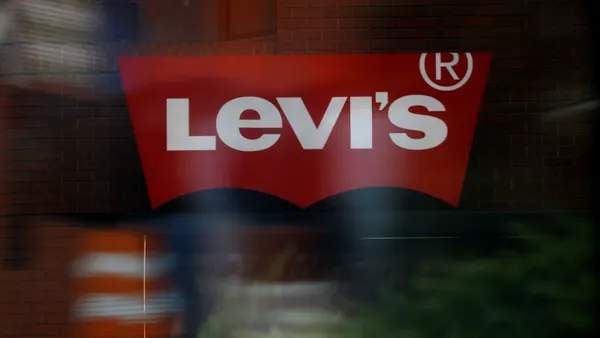Dive Brief:
-
The retail automation market is expected to be worth more than $18.9 billion by 2023, expanding at a compound annual growth rate of more than 10.9% between this year and 2023, according to new market research from Research and Markets.
-
The new report states that the imminent market growth is being "propelled by the growing deployment of self-automated technologies" — such as RFID and others — by retailers like supermarkets, hypermarkets and single item stores.
-
Asia-Pacific is expected to be the international region with the highest CAGR during the forecast period. The retail automation market in APAC is expected to grow significantly there, especially in China, India and Japan, because of factors such as rising employee wages and overall growth in employment, the research states. These factors drive the consumption of retail products, which is ultimately expected to boost the retail automation market in this region.
Dive Insight:
This research suggests that supermarkets are leading the way in adopting self-automated technologies to enhance customer experience, improve inventory management and modernize other processes. Of course, we didn't need to hear that from the number crunchers to believe it, as large grocery retailers are already racing one another to see who can be the first to widely adopt technologies that allow them to accomplish things like eliminating checkout lines.
Walmart may have just jumped ahead of Amazon in that race by installing a mobile barcode scanning capability into several of its stores. Even last year, Panasonic unveiled what it described as a completely automated checkout machine. The research covers much more than just self-automated checkout, though, including store solutions like Tally, the Simbe Robotics robot that scans store shelves to monitor inventory levels and trends to help stores track inventory more accurately.
On the technology side, a variety of companies — not just Panasonic and Simbe — are working to enable further automation of retail processes. The Research and Market press release describes the efforts of one such company — Datalogic — but companies such as Zebra Technologies, Honeywell Scanning and Mobility, NCR and many others are also contributing to various types of efficiency-enabling automation technologies.
That doesn't mean the technology will transition without friction. A few months ago, a different research report raised concerns over the retail automation trend, saying that it could replace up to 7.5 million retail jobs in the coming years. Indeed, the new Research and Markets report acknowledges that the "balance between retail automation and employment" is a "burning issue."
Even as retailers maintain that automation is meant to enhance and assist store associates and other personnel, there is no getting around the notion that more automation in most cases means fewer jobs. That being said, if retailers are to position their brick-and-mortar stores to survive in a changed retail landscape, it's a transition they might need to make.













